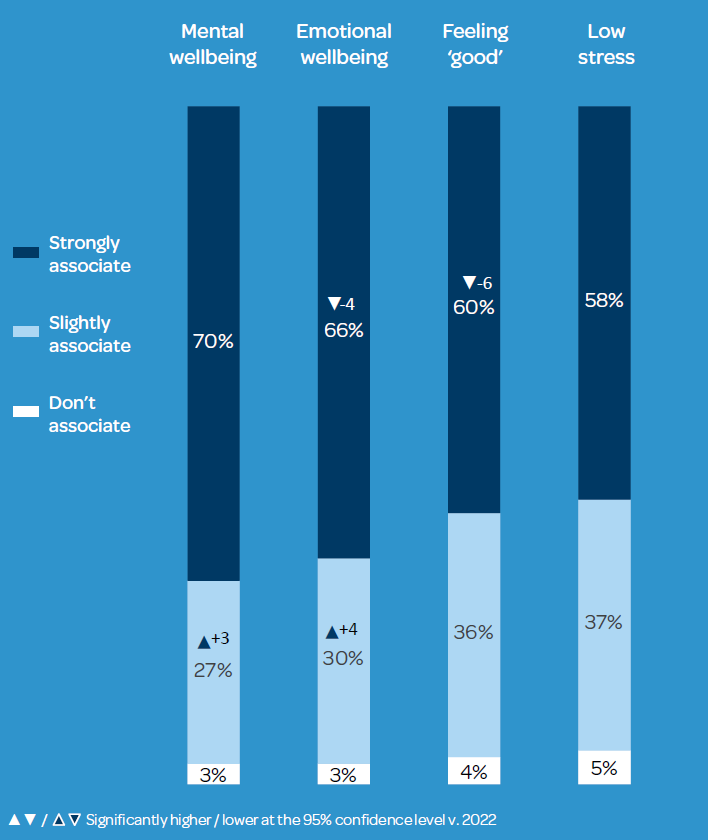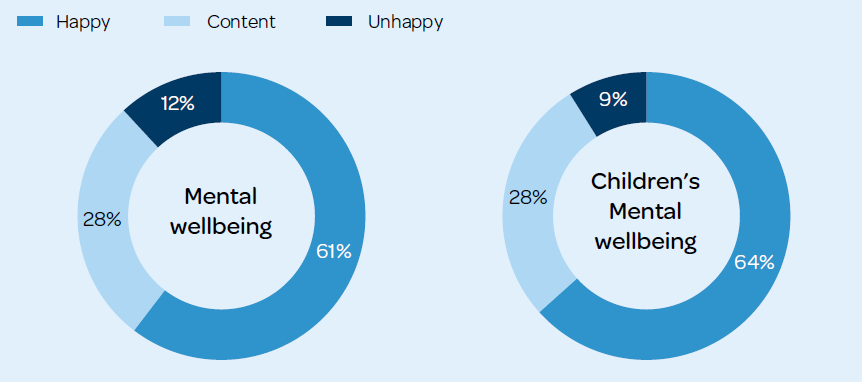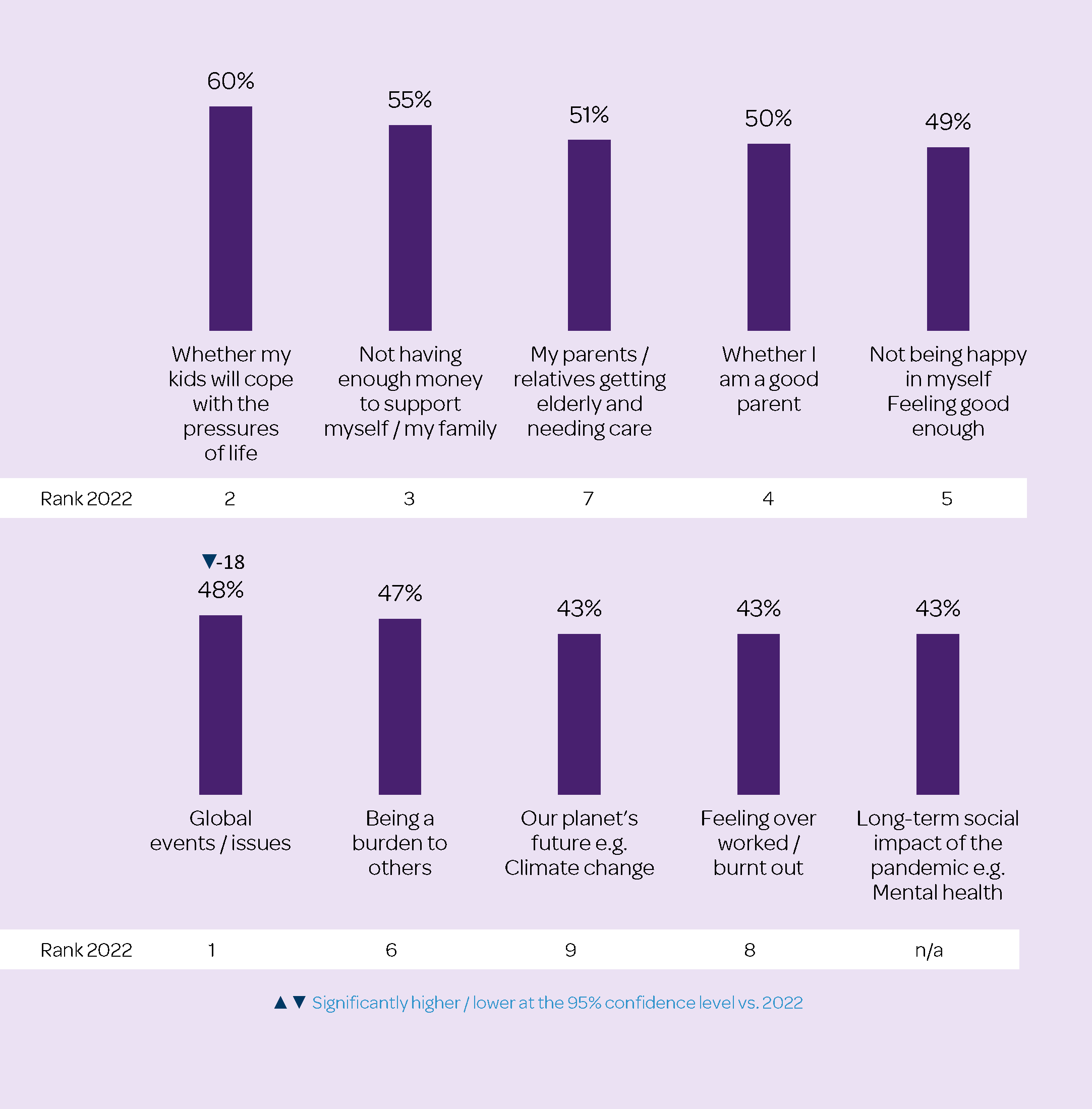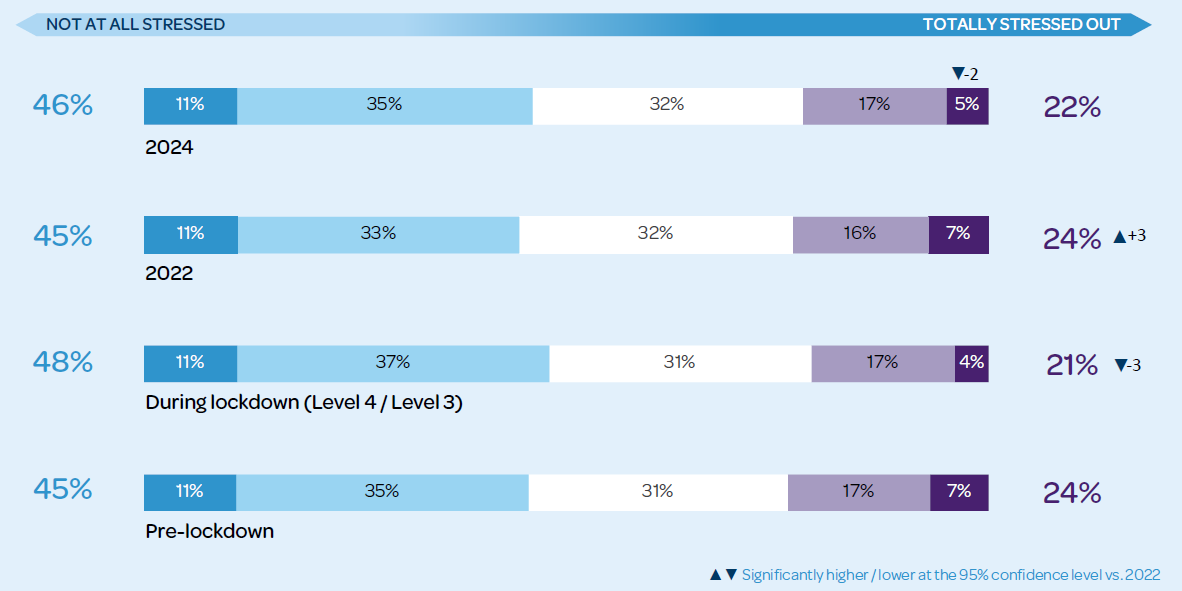Mental health

Interested to know more about New Zealanders’ attitudes and behaviours in relation to their mental health? We’ve included a summary below from our latest Healthy Futures research.
How mental and emotional wellbeing link to overall health
Although most New Zealanders strongly associate good mental and emotional wellbeing with being healthy, this sentiment has decreased over the past two years. Males, SINKS (Single Income No Kids) / DINKS (Double Income No Kids) and those living in Auckland are all less likely to strongly associate mental health with being healthy.
The vast majority of New Zealanders are happy or content with their children’s mental wellbeing.


Emotional wellbeing concerns
The most prevalent emotional wellbeing concerns for New Zealanders are whether their children will cope with the pressures of life, followed by not having enough money and parents / relatives needing care, with the latter moving from 7th to 3rd place.
Concerns about world events and vaccination status dramatically decreased from 2022, potentially pointing to a normalised view of Covid-19 amongst New Zealanders.

Stress levels
The rate at which people have felt stressed this year is slightly lower than in previous years, including the pre-lockdown period. This has been influenced by a reduction in the number of people who feel ‘totally stressed’, however certain groups are more stressed, including people living with disabilities and 18-49 year-olds.

Impact of technology on health and wellbeing
There is growing concern among New Zealanders about the impact time on devices has on their children’s health, particularly for those aged 30-39. Fewer people believe computer games and devices can help children to learn problem-solving and to build connections with others.
Technology can also have a positive impact. It helps us to connect with others through social media and provides a sense of community, particularly for university students and 18-29 year-olds.